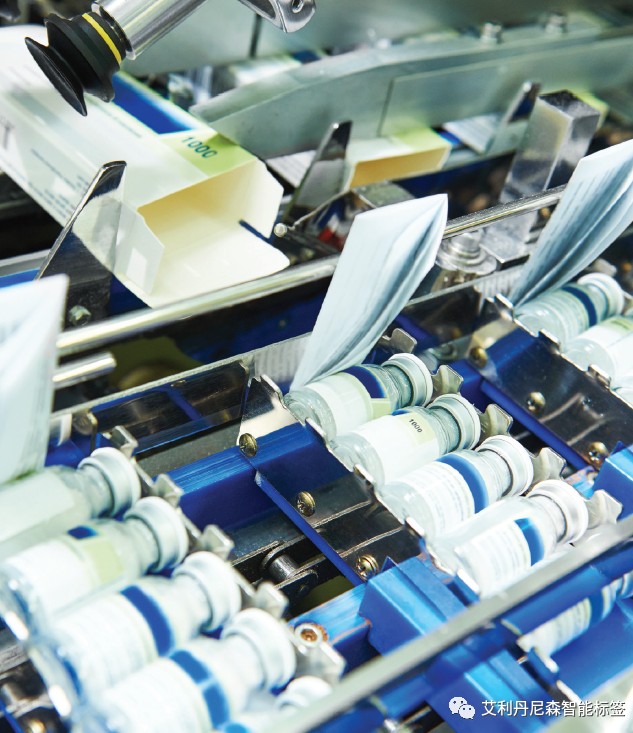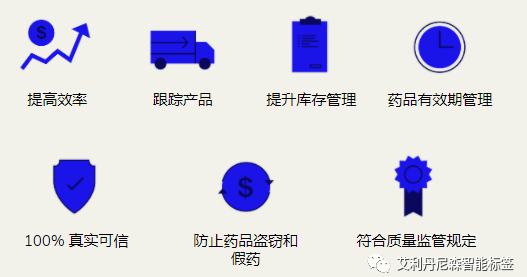
Avery Dennison helps Hanmi Pharma maximize supply chain efficiency
[ad_1]
Pharmaceuticals are one of the most sensitive and regulated product categories in the world, which means that any pharmaceutical tracking and management system must be completely reliable and prevent theft, fraud or counterfeiting. One of the world’s largest RFID-based drug management systems has successfully adopted Avery Dennison’s RAIN RFID tags to ensure the integrity of the supply chain.
One of South Korea’s largest pharmaceutical companies, Hanmi Pharmaceutical Co., uses RFID to improve efficiency, monitor product transportation and help it meet government-defined quality management requirements. The company has fully deployed Avery Dennison’s RAIN RFID tags to track the links from packaging, picking to transportation, and realize the automated process of 60 million single products each year from receiving orders to shipping boxes of products to wholesalers.
Since 2009, the company has been exemplary in supply chain management of sensitive drugs. Hanmi installed an automatic picking system (APS) in conjunction with RFID, using EPC Gen 2 passive UHF UHF RFID tags and readers to identify products, and collecting, packaging and transporting these items without manual intervention. In fact, because each box corresponds to an order for packaging, the only part of the process that involves manual labor is the inspection by Hanmi’s employees.

Break with tradition
In the Korean pharmaceutical industry, the distribution structure (direct transaction and wholesale transaction) is very complicated, and the process of drug production and distribution is mainly handled manually. In addition, in the distribution process, there are many difficulties in managing the appropriate amount of inventory and the expiration date of medicines due to the inability to correctly use the POS system in every pharmacy across the country.
On the contrary, Hanmi’s RFID-based traceability system can effectively manage the production history, inventory status and logistics traceability of products in this complex pharmaceutical environment, thereby protecting the rights of the owner and reducing unnecessary inventory management in the logistics process cost.
Although faced with the conservative attitude of the industry and the lack of understanding of RFID technology, the new system encountered some resistance in the initial stage, but after the introduction stage, the Hanmi system was quickly adopted nationwide, and it has covered the whole country within nine years after its launch.

Fully verify each drug
Hanmi’s Pedigree system is not only a drug distribution management system, it is used to manage the process of various drugs being produced by pharmaceutical companies and distributed to hospitals and pharmacies before being sold to patients. It can also prevent deadly threatening counterfeit drugs from appearing on the market, and at the same time solve the problem of unlicensed drugs flowing into the pharmaceutical supply chain.
Korea’s Ministry of Health and Welfare’s Pharmaceutical Affairs Act has also accelerated the use of the latest tracking system, which requires manufacturers to attach RFID or Code 128 barcodes to prescription drugs six years ago. Hanmi uses RFID for prescription drugs and over-the-counter drugs (OTC).

Customized labels for specific needs
Hanmi uses Avery Dennison’s RAIN RFID tags in its solution. In order to meet Hanmi’s requirements, Avery Dennison has developed special RFID inlays and tags for inventory and supply chain management. These inlays and tags include small sizes from 35x18mm to 15x11mm and special specifications of 97x13mm.
These customized labels and inlays meet Hanmi’s specific needs (including labeling very small vials and ampoules), and use Impinj Monza IC. The RFID system used is an access gate antenna system developed by Hanmi based on the Impinj read-write device.

Smart products make smart factories
Hanmi is working hard to consolidate its international leadership as a contract development and manufacturing organization (CDMO).
The company’s next stage of development will be to use the “big data” accumulated in the existing RFID-based manufacturing system, which was installed in Hanmi’s “smart factory” in 2009. The existing RFID system will track and record product information at each step of the supply chain, from production to sales, and this information will be used to create new analysis tools.
This new investment will be used for more effective mass production or small-scale production of various experimental drugs, such as double-layer tablets, film-coated or uncoated tablets, hard gelatin capsules and multi-capsules. Using these data to simplify the production process of the “smart factory” will enable Hanmi to maximize efficiency and competitiveness.
[ad_2]



